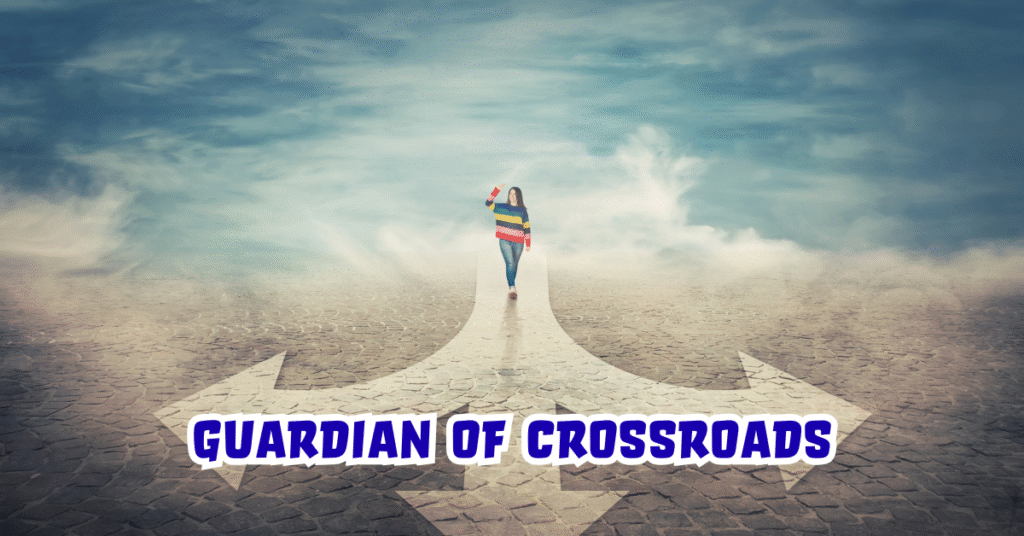Elegua is one of the most intriguing and widely recognized figures in the Yoruba religious tradition, often referred to as the gatekeeper of paths, opportunities, and choices. Revered in West African spirituality and across the Afro-Caribbean diaspora, Elegua holds a role that is both spiritual and symbolic. For seekers trying to understand his cultural meaning, Elegua is not simply a deity but a representation of beginnings, guidance, and the forces that govern destiny. He is considered the opener of doors, the messenger between humans and the divine, and the one who ensures that no ritual or prayer reaches the higher Orishas without his consent. Understanding Elegua requires exploring his roots, rituals, modern adaptations, and how his influence transcends religion into cultural identity. This guide will give you an in-depth perspective on who Elegua is, how he is venerated, and why his symbolism continues to inspire followers around the world.
Origins of Elegua in Yoruba Tradition
Elegua originates from the Yoruba people of West Africa, specifically in what is today Nigeria. Within the Yoruba pantheon of Orishas, he holds a foundational role because nothing begins without him. Unlike other spiritual entities who govern specific aspects of life, such as love, war, or agriculture, Elegua embodies the essence of decision-making and direction. In mythology, he is said to know every path and every possibility, making him indispensable in guiding humans through the uncertainties of life.
He is often described as mischievous yet wise, embodying both the innocence of a child and the cunning of an elder. This duality explains why followers view him as both playful and deeply serious, depending on the circumstance. His colors—most commonly red and black—symbolize this contrast, while his sacred number, three, is frequently used in offerings and rituals.
Elegua’s Symbolism and Attributes
The symbolism of Elegua extends beyond religious rituals into everyday philosophy. He is associated with crossroads, both literal and metaphorical, representing the points in life where decisions must be made. He is often invoked when individuals seek clarity, whether in personal matters, relationships, or larger community decisions. His image may be represented through a carved stone head with cowrie shells, which serve as his eyes and mouth, symbolizing his watchful presence.
Elegua is also known as a trickster. This aspect of his personality teaches that life is unpredictable and that outcomes may not always align with human expectations. As the gatekeeper, he tests sincerity and intentions, ensuring that prayers are not just empty words but genuine acts of faith.
Table: Key Attributes of Elegua
| Attribute | Symbolism/Representation | Cultural Meaning |
|---|---|---|
| Colors | Red and Black | Duality, energy, contrast between forces |
| Sacred Number | 3 | Completeness, decision points |
| Common Symbols | Crossroads, keys, cowrie shells | Guidance, communication, pathways |
| Personality Traits | Trickster, childlike, wise elder | Balance of innocence and cunning |
| Ritual Position | Always honored first in ceremonies | Gateway to divine communication |
Rituals and Practices Connected to Elegua
Rituals dedicated to Elegua emphasize respect and acknowledgment. In Yoruba and Santería practices, no ceremony can begin without him. Offerings may include candies, cigars, rum, and even toys to honor his playful side. These items symbolize gratitude and a request for his blessing in opening the road ahead.
At home altars, devotees often place his figure near doorways to symbolize his role as the guardian of thresholds. Daily prayers might involve speaking directly to him, asking for guidance in choices that shape everyday life. Ceremonies for larger life events—marriages, travels, or business ventures—often begin with an invocation to Elegua, ensuring his approval before proceeding.
Elegua Across the Afro-Caribbean Diaspora
When Yoruba traditions spread across the Atlantic during the transatlantic slave trade, Elegua traveled with them. In Cuba, he became central to Santería, blending with Catholic influences while retaining his original essence. In some regions, he is syncretized with Saint Anthony or the Holy Child of Atocha, reflecting a fusion of African spirituality and European Christianity.
In Haiti, Brazil, and other parts of Latin America, variations of Elegua exist under different names but serve a similar purpose. Regardless of the cultural adaptation, the core idea remains: he governs the paths, choices, and communication between worlds.
Modern Interpretations of Elegua
Today, Elegua is not confined to religious settings alone. He has become a cultural symbol of resilience, adaptability, and self-determination. In art, music, and literature, Elegua is depicted as a figure that challenges authority and disrupts norms while guiding communities toward survival and growth.
For younger generations exploring ancestral traditions, Elegua represents a connection to heritage. In diaspora communities, his image often appears in murals, songs, and festivals as a reminder of spiritual continuity. This modern embrace shows how Elegua continues to evolve, bridging the sacred with contemporary life.
Table: Global Presence of Elegua
| Region | Local Adaptation | Syncretized Figure | Core Role Retained |
|---|---|---|---|
| Nigeria | Traditional Yoruba Orisha | None | Guardian of crossroads |
| Cuba | Santería practices | Saint Anthony, Holy Child | Opener of paths |
| Brazil | Exu in Candomblé and Umbanda | None | Messenger, trickster |
| Haiti | Elegba in Vodou traditions | Catholic saints | Mediator, gatekeeper |
| United States | Adopted in diaspora communities | Cultural icon | Symbol of guidance |
Elegua’s Lessons in Philosophy and Daily Life
Elegua’s enduring presence teaches lessons about uncertainty and choice. He reminds followers that every path has consequences and that faith involves both risk and responsibility. His trickster side suggests that laughter and play are necessary even in the face of hardship, offering resilience as a way to navigate life’s complexities.
By embracing Elegua’s principles, individuals can reframe challenges as opportunities and see crossroads not as obstacles but as invitations to grow. His philosophy encourages an acceptance of unpredictability while still urging responsibility in decision-making.
Frequently Asked Questions (FAQs)
1. Who is Elegua in Yoruba tradition?
Elegua is an Orisha in Yoruba religion, known as the guardian of crossroads, opener of paths, and messenger to higher deities.
2. Why is Elegua always honored first in rituals?
Because he controls communication between humans and Orishas, no prayer or ritual can reach the divine without his permission.
3. What offerings are given to Elegua?
Common offerings include candies, cigars, rum, toys, and small coins, reflecting both his playful and wise aspects.
4. How is Elegua represented physically?
He is often symbolized by a stone head adorned with cowrie shells or statues placed near doors and crossroads.
5. Is Elegua only worshipped in Africa?
No, Elegua is central in Afro-Caribbean religions like Santería, Vodou, and Candomblé, and is embraced globally today.
Conclusion
Elegua stands as a powerful symbol of choice, resilience, and continuity. As the opener of paths and the gatekeeper of communication, his presence is both practical and deeply spiritual. From Yoruba villages to modern diaspora communities, his essence remains intact: he is the reminder that life is shaped by crossroads, and in choosing, we define our destiny.
As one devotee once reflected, “Every door that opens has Elegua’s hand upon it.” That sentiment underscores why his role transcends ritual and becomes a philosophy of living. Whether seen as a trickster, a guide, or a messenger, Elegua’s spirit invites humanity to honor both tradition and the ever-changing journey of life.







